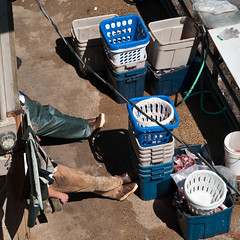Oregon Sea Grant is accepting applications for the 2011 National Marine Fisheries Service (NMFS)–Sea Grant Joint Graduate Fellowship Programs in Population Dynamics and in Marine Resource Economics.
The award for each fellowship is contingent upon the availability of federal funds and will be in the form of a grant or cooperative agreement of $38,500 per year.
The complete Federal Funding Opportunity can be accessed through the links provided on the Oregon Sea Grant website: http://seagrant.oregonstate.edu/funding/fellows.html
If you wish to apply through Oregon Sea Grant, please contact Eric Dickey (eric.dickey@oregonstate.edu or 541-737-2715) for more information.
Fellowship Program in Population Dynamics
The Graduate Fellowship Program awards at least two new Ph.D. fellowships each year to students who are interested in careers related to the population dynamics of living marine resources and the development and implementation of quantitative methods for assessing their status. Fellows will work on thesis problems of public interest and relevance to NMFS under the guidance of NMFS mentors at participating NMFS Science Centers and Laboratories.
Fellowship Program in Marine Resource Economics
The Graduate Fellowship Program generally awards two new Ph.D. fellowships each year to students who are interested in careers related to the development and implementation of quantitative methods for assessing the economics of the conservation and management of living marine resources. Fellows will work on thesis problems of public interest and relevance to NMFS under the guidance of NMFS mentors at participating NMFS Science Centers and Laboratories.


